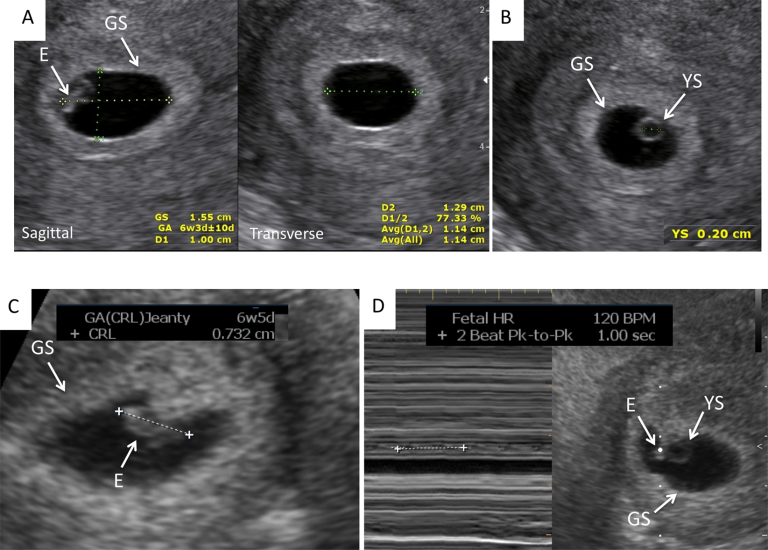The Benefits of Early Pregnancy Ultrasounds: Why They Matter
Pregnancy is a whirlwind of excitement, curiosity, and, sometimes, a little bit of nervousness. For many expecting parents, early pregnancy ultrasounds are the first glimpse into a new chapter of life and an essential step in monitoring the baby’s health. But beyond providing adorable first photos for a scrapbook, early ultrasounds play a critical role in ensuring a smooth pregnancy.
This post explores the many benefits of early pregnancy ultrasounds, shedding light on why they are essential not only for excited parents but also for healthcare professionals guiding the pregnancy journey.
What Are Early Pregnancy Ultrasounds?
An early pregnancy ultrasound typically occurs between 6 and 12 weeks of pregnancy. Using sound waves to create images of the developing embryo or fetus, this non-invasive procedure allows doctors and parents to observe early pregnancy milestones.
Unlike later ultrasounds primarily focused on anatomy and growth, early ultrasounds help confirm the fundamentals, such as gestational age, location of the pregnancy, and viability. These scans provide vital information for navigating the next stages of pregnancy.
Common types of early ultrasounds include:
- Transabdominal Ultrasound: Performed on the belly, commonly used after about eight weeks of pregnancy.
- Transvaginal Ultrasound: Performed with a probe inserted into the vagina—ideal for earlier scans to provide clearer images.
Now that we know what early ultrasounds are, let’s explore why they matter.
1. Confirming the Pregnancy and Gestational Age
For expecting parents, one of the most reassuring benefits of an early ultrasound is confirming the pregnancy. While at-home pregnancy tests and physical symptoms are good indicators, an ultrasound provides a medically validated confirmation.
Determining Gestational Age
During the first ultrasound, your healthcare provider will measure the embryo or fetus to determine the gestational age. Accurately knowing how far along you are is essential as it sets the stage for future check-ups, developmental milestones, and, most importantly, the due date.
Why This Matters:
- Accurate tracking: Miscalculating your due date could lead to unnecessary interventions or missing critical tests scheduled during specific weeks of pregnancy.
- Peace of mind: For parents anxiously awaiting confirmation, hearing the heartbeat during this ultrasound often signifies the start of a healthy pregnancy.
Example insight:
Recent studies suggest accurate dating reduces the likelihood of a post-term pregnancy, which can complicate delivery.
2. Ensuring the Pregnancy Is in the Right Location
An early ultrasound checks whether the pregnancy is developing where it should—in the uterus. A small percentage of pregnancies can be ectopic, where the embryo implants outside the uterus, most commonly in the fallopian tube. Ectopic pregnancies can be life-threatening if left unaddressed.
How Ultrasound Helps:
By identifying ectopic pregnancies early, healthcare providers can take immediate steps to prevent complications. This proactive approach can be life-saving for parents and ensures that future pregnancies proceed more safely.
Why This Matters:
- Early detection of potentially dangerous conditions allows for timely medical intervention.
- Parents can avoid life-threatening risks and prepare for the next steps in their reproductive health.
Fun fact:
Ectopic pregnancies occur in about 1–2% of all pregnancies, highlighting the value of routine early ultrasounds.
3. Validating Fetal Viability
One of the most anticipated milestones at this stage is hearing the baby’s heartbeat, often perceived as a critical sign of viability (a thriving pregnancy). Early ultrasounds can detect a heartbeat as early as 6 weeks, ensuring the fetus is developing as it should.
What This Includes:
- Monitoring the rate and rhythm of the fetal heartbeat
- Observing the initial signs of healthy growth
Why This Matters:
- Parents can feel reassured knowing the pregnancy is progressing normally.
- Providers can quickly identify and address any issues if growth or heartbeat isn’t as expected.
This early validation eases much of the anxiety many parents feel during the uncertain early weeks of pregnancy.
4. Identifying Multiple Pregnancies
Are you expecting one baby—or more? An early pregnancy ultrasound can identify if you’re carrying multiples. This is particularly important as twin or multiple pregnancies may require specialized care and monitoring to ensure the health of both the babies and the mother.
How This Helps:
- Parents and healthcare providers can prepare for any additional risk factors associated with carrying multiples, such as preterm labor.
- Families can start planning for the practical and emotional demands of raising twins—or even triplets!
Why This Matters:
- Early detection sets the foundation for detailed prenatal care tailored to the complexities of multiple pregnancies.
Fun realization:
“Surprise, you’re having twins!” ranks as one of the most unforgettable moments for parents during an early scan.
5. Tracking Progression for High-Risk Pregnancies
For individuals with high-risk pregnancies—whether due to age, medical conditions, or previous complications—early ultrasounds are even more critical. By closely monitoring the early stages of pregnancy, doctors can identify potential problems before they escalate.
Conditions Managed with Early Ultrasounds:
- Diabetes and hypertension
- History of miscarriages
- Placental development issues
Why This Matters:
Early ultrasounds allow healthcare providers to personalize care to ensure both mother and baby remain healthy.
Example:
A pregnant woman with a history of preeclampsia could benefit from early detection and intervention strategies designed using ultrasound imaging.
6. Building Emotional Connections
While the primary focus of early ultrasounds is medical, there’s also an undeniable emotional benefit for parents. Seeing the first images of a growing life and perhaps hearing the heartbeat for the first time creates a profound emotional connection and reinforces feelings of joy and anticipation.
How Ultrasound Enhances Bonding:
- For many parents, it’s the moment pregnancy feels “real.”
- Partners and other family members can join the experience to share in the excitement.
This early bonding moment serves as a reminder of the beauty of the nine-month journey ahead.
Making the Most of Your Early Pregnancy Journey
Early pregnancy ultrasounds play both critical medical and emotional roles in pregnancy. From confirming the pregnancy and tracking vital health measures to creating unforgettable family moments, these scans are an indispensable part of the prenatal care process.
If you’re an expecting parent, make sure to schedule your first ultrasound within the recommended timeframe (around 6–12 weeks). Discuss any concerns or questions you may have with your healthcare provider to ensure you’re prepared for every step of this miraculous adventure.
Looking for more help navigating pregnancy? Follow our blog for tailored advice and stay informed on key milestones or medical advancements designed to support healthy pregnancies.






